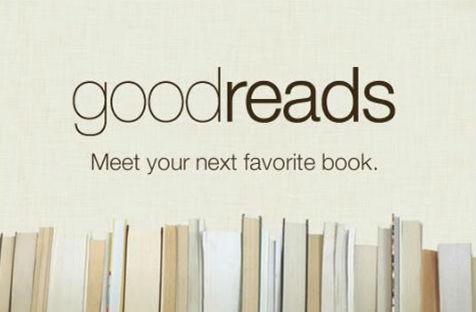Amazon swallowed up book enthusiast site Goodreads last week, raising concerns about the monolithic e-tailer’s ongoing monopolisation of the publishing industry.
For those of us not counted amongst Goodreads’ 16 million users, the site enjoys the distinction of being the Internet’s premiere social media platform for book lovers. Members join up, befriend others and share reviews and comments about books. It’s basically Facebook for the literary minded, with one very important distinction. If a friend of yours on the site recommends a book, or the site recommends you a book, you’ll have the option to ‘Get a copy’.
With Amazon now publishing its own titles, as well as selling books on other publisher’s lists, one of the main concerns of those wary about Amazon’s acquisition of Goodreads is the ability to access outside booksellers. If Amazon controls the world’s biggest bookstore, and now have access to 16 million potential customers, this ‘Get a copy’ link could take users directly to Amazon’s online store. This cuts out other booksellers, not to mention chipping away at the already shaky foundations of books and mortar stores.
The concern isn’t just unfounded hysteria. In the past, when Goodreads’ users linked to Amazon for purchases, people who clicked were unable to access competing bookseller sites. This was done through Amazon’s application programming interface (API), which Goodreads’ stopped using in 2011 because it was too restrictive.
But if you heard from Goodreads CEO Otis Chandler today, you wouldn’t sense any opposition to Amazon. In a blog post on Goodreads on 28 March, Chandler stated, ‘Today I’m really happy to announce a new milestone for Goodreads. We are joining the Amazon family. We truly could not think of a more perfect partner for Goodreads as we both share a love of books and an appreciation for the authors who write them.’
Well of course he’s really happy. The San Francisco-based company, which launched in 2007, has only had around $2 million USD worth of financing according to Businessweek. The latest figures on the sale of Goodreads from AllThingsD.com, puts Amazon at paying around $150 million USD for the site. That’s not bad for a company founded by Chandler and his wife Elisabeth, which employs around 40 people.
A lot of the sites users aren’t so happy. Trawling the comments below the announcement on Goodreads’ Facebook page, you get the impression that people aren’t impressed. ‘Not sure I’m liking Amazon buying Goodreads… a little too “Big Brother-ish” for my tastes’ posted Jan Halliday, while Linette Weiss wrote ‘Really bad news, beginning of the end for me and my favourite site Goodreads – hate Amazon for what it is doing to the book world, just can’t stick around and help them do its to Goodreads as well.’ Similarly, the Twitterverse expressed its indignation.
Another of the assumptions that has raised users’ ire is the assumption that Goodreads will funnel their personal information to Amazon for sales purposes. Under Chandler’s blogpost, a number of users express this sentiment. ‘I liked/would prefer a community of readers not backed by someone with motives to a) unrelentingly mine my data and b) sell me stuff,’ writes Anne Payne. Laura Jones echoes her sentiments, ‘Loss of an independent reader community, now another channel for the faceless machine to leech reader data to withhold from suffering publishers & booksellers.’
While this was the response of many users, the acquisition did have its supporters. ‘So giddy about @amazon and @goodreads! This is the best acquisition I’ve heard of in a while!’ Tweeted @topherjaynes, while others were looking forwards to how Goodreads would be integrated with Amazon’s Kindle e-book reader.
Chandler broached the latter interest in the same 28 March blog post. ‘For all of you Kindle readers… You’ve asked us for a long time to be able to integrate your Kindle and Goodreads experiences. Making that option a reality is one of our top priorities.’
But just because Goodreads and Amazon are into wish fulfilment for a percentage of their users, the larger (or perhaps more vocal) portion still worries about the monopolisation of publishing. Amazon has already acquired in whole or in part, Bookreads’ competitors, including Shelfari and LibraryThing, according to The New York Times. Not to mention that Amazon, along with the six biggest publishers, Random House, Penguin, Hachette, Simon & Schuster, HarperCollins and Macmillian are currently facing an anti-trust suit from independent bookstores over monopolising the eBook market.
Speaking of those big publishers, the announcement of Amazon’s acquisition of Goodreads comes hot on the heels of the long-awaited launch of Bookish. Bookish is slightly different to Goodreads, but essentially it’s a place for readers to discover new titles, and most importantly a place to buy them. It’s also co-owned by three of the world’s biggest publishers, Penguin, Hachette and Simon & Schuster. Rather than rely on the social interaction like Goodreads, Bookish sets itself apart by using original editorial content to attract eyeballs, including content partnerships with USA Today and The Onion.
Its recommendation system is also different. While Amazon and Goodreads are based on what they call ‘collaborative filtering’, which is based on user interaction and past activity, Bookish uses metadata. Bookish’s recommendation algorithm requires users to input titles they like and the site will figure out a user’s tastes. ‘Recommendations are based on the books and understanding of the books,’ Karen Sun, who heads the company’s recommendation engine, told paidContent’s Laura Hazard Owen.
Owen summarised it further:
‘The recommendation looks at features like the authors, editors and illustrators who contributed to a book, the awards a book has won, and genre and publication date, then layers on a machine-learning component that parses user and professional reviews to try to distill themes, concepts and sentiments. Insights from the editorial team are included, too.’
While their approach may be different, the end result is the same – sell books. Acquiring Goodreads only seven weeks after its competitors launched Bookish (after a two year delay), demonstrates the intensity of Amazon’s approach to the competitive and lucrative book market.
Still, for the time being, everyone is playing nice. Bookish links to outside e-commerce sites like Amazon, and at least at the moment, you can still access booksellers like Barnes & Noble from Goodreads in the US, and Bookworld, which is owned by Pearson, in Australia.
Of course, this all comes at a time when these publishers are still dealing with that anti-trust suit. No one really wants to be seen as Rich Uncle Pennybags when giants like Borders have been put to bed. If they can’t survive, what hope do independent booksellers have?
So for now, both Amazon and Goodreads are stressing it’s business as usual at the site. ‘Goodreads is enjoyed by readers of books in any format and on any platform, and we expect to keep it that way,’ a spokesman for Amazon said.
In an interview with Owen, Chandler was also quick to reassure users. When she asked if the practice of linking to outside retailers (other than Amazon) would continue, Chandler answered:
‘It’s incredibly important to us that Goodreads remain a platform for all kinds of readers to use, whether they’re reading paper or on their Nook or Kindle or whatever. We always want Goodreads to be a place for people to share and talk about books… As for specific design of [the links], we’ll see, but we really think about it from the user perspective. If users really want those links [to other retailers], then those links will probably still be there.’
Those links will probably still be there. Chandler’s answer is obviously the epitome of ambiguity. While the site stews over what changes they will make, and its community awaits those, what is known is that this is another blow to booksellers. Controlling a social network site is a bit like owning word-of-mouth, which is one of the main customer points of entry for booksellers. If you’re the bookseller, that’s not a bad place to be.
Yet the full impact of the acquisition remains to be seen.
Readings Managing Director Mark Rubbo told us that, ‘It obviously further cements Amazon’s position. I imagine Amazon is most interested in Goodreads for e-book delivery and to further their hold on that market. I would imagine that they would be looking to use that power to either extract better terms from publishers or increase their prices.’
And for bricks and mortar booksellers?
‘The implications for bricks and mortar aren’t good, especially in the US where Goodreads is most popular. While Amazon still don’t have a local entity to sell print books, that’s going to shield Australian print booksellers because they can’t supply Australian books unless they have international editions. However that could spur them on to do so – probably by buying Booktopia or Bookworld from Pearson – that would be ironic!’





